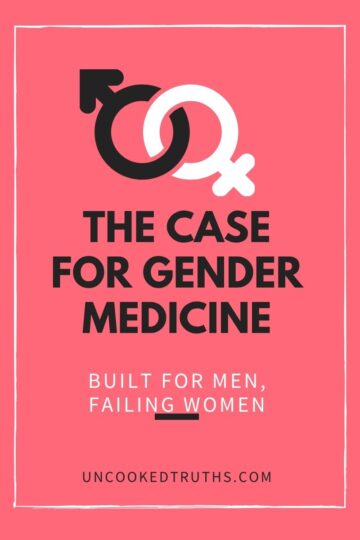If you're confused by what your partner is going through, this article will help you understand what's happening and how you can actually help. It's a practical, honest guide for husbands who want to show up, not just survive during menopause.

Jump to:
Welcome to the Fog (Don't Panic)
If you’ve been walking on eggshells lately and you’re not sure why, if your wife suddenly can’t sleep, forgets what she was saying mid-sentence, or has threatened to divorce you over the way you chew, you might be living with a woman in perimenopause.
Don’t panic. She’s not losing her mind, and neither are you. But if you’re going to survive this chapter as a couple, you’re going to need more than patience. You’re going to need some basic education on menopause support, empathy, and the ability to take a joke without making one.
This guide is for husbands, boyfriends, and confused partners who want to know how to support their wife through menopause without making things worse. (Spoiler: asking if she's "on her period" is not it.)
What She's Up Against: Biology, Burnout, and the Big Shift
Let’s clear this up: your partner isn’t losing her mind. She’s going through a major physiological shift triggered by changing hormone levels, and no, it’s not just about having fewer periods.
The primary hormones involved are estrogen, progesterone, and testosterone, which all women and men have, just in different amounts. These hormones are produced mainly by the ovaries in women, and they influence everything from mood and memory to temperature regulation, energy, and sex drive.
In perimenopause, the ovaries begin to wind down production of these hormones. But they don’t do it slowly or neatly. It’s a hormonal rollercoaster: one day estrogen is high and she's flying; the next, it's low and she's on the couch questioning her life. This unpredictability is what causes most of the classic symptoms.
Here are a few of the most common effects:
- Mood swings and irritability from unstable estrogen levels affecting serotonin. Yes, menopause mood swings are a real thing, and they are not for the faint of heart.
- Fatigue and brain fog due to low progesterone and poor sleep.
- Anxiety or depressive symptoms without any external cause.
- Hot flashes and night sweats are triggered by changes in the hypothalamus (the body's thermostat).
- Loss of libido and vaginal dryness as estrogen declines.
Read More: 65_Menopause_Symptoms
This isn’t drama. It’s biology. Going through menopause might be difficult for most women, but it doesn’t mean they are weak or broken. It means their endocrine system is shifting gears after decades of running on a consistent hormonal loop.
She might not even know she’s in perimenopause yet. Most women aren’t warned by their doctors, and very few are taught what to expect. So if you understand this, it puts you in rare company and in a better position to support her through it.
One more thing: unless she's been through full menopause and hasn't had a period for 12 consecutive months, she can still get pregnant. Yes, even in her 40s or early 50s. The hormones may be fluctuating wildly, but ovulation can still happen sporadically. If avoiding pregnancy is important, don't assume biology has taken care of it. This is another reason good communication (and maybe a doctor's visit to have a menopause chat) matters.
Her body is recalibrating. It’s like puberty in reverse, with less acne and more joint pain.
What Not to Say
Let’s make this easy. Here are a few phrases to permanently delete from your vocabulary:
- "Are you on your period? " Why it's bad: Perimenopause is not a period problem, it’s a hormone fluctuation problem. Also: rude.
- "You were fine yesterday." Why it's bad: Hormones don’t check your Google Calendar.
- "You’re overreacting." Why it's bad: Even if she is, saying this guarantees you’ll need to duck.
- "Let me fix it." Why it's bad: Sometimes she doesn’t need a solution. She needs you to nod and shut up supportively.
What She's Feeling (and Why It’s Not About You)
Let’s be real, she’s tired. Not "long day at the office" tired. We’re talking bone-deep, can’t-think, running-on-empty tired from months (or years) of disrupted sleep, hormone swings, and daily overwhelm. And if she’s cranky? That’s not a character flaw. That’s exhaustion mixed with physical discomfort and feeling invisible in her own home.
She might also feel rejected in her own body, and you might feel rejected in the bedroom. But often, it’s not personal. Estrogen loss can lead to vaginal dryness and thinning tissues, making sex physically painful.
Combine that with fatigue, anxiety, and body image changes, and intimacy can feel like one more demand instead of a connection point. What many couples don’t realize is that there are effective treatments available.
Vaginal estrogen, for instance, can significantly reduce discomfort and restore sexual health. But here’s the problem: most women aren’t told about these options. Even worse, many healthcare providers are undertrained in menopause support and may dismiss or overlook this completely.
That’s why a well-informed partner matters. Gently encouraging her to speak with a knowledgeable doctor, specialist in menopause help, and doing a little research yourself, can lead to real solutions and relief.
This is where you come in. Not with judgment. With support.
10 Ways To Actually Help
1. Educate Yourself: Read books, listen to podcasts, follow menopause experts on social media. Know what estrogen does, what symptoms look like, and why your partner isn’t making this up. When men understand menopause and the biological changes behind their partner’s symptoms, they’re more likely to respond with compassion instead of confusion.
Read more: How Menopause Affects Marriages and What Saved Mine
2. Go Through It Together: Attend doctor’s appointments if she wants you there. Take an interest. Ask questions. Say, “What did the doctor say about your sleep?” or “Want me to read that article you mentioned?” This builds trust.
3. Be Sensitive: This isn’t just about hot flashes. It’s about loss of control, aging, identity, and physical discomfort. Your patience will never be wasted.
4. Ask Before Assuming and Listen Without Trying to Solve: Ask questions like: “Do you want help or just a safe place to vent?” Then follow instructions.
“Do you want to talk about it?” is better than assuming she’s mad at you. “What can I do that would help right now?” can go a long way.
5. Step In, Don’t Wait to Be Asked: Don’t say “let me know if you need help.” Do the dishes. Handle bedtime. Book the dentist appointment. Show, don’t ask.
6. Become a Team: Frame this phase as something you tackle together. You’re not the bystander, you’re the partner. Think of yourselves as a unit facing down a storm.
7. Reassure Her: Menopause can shake a woman’s self-image. Tell her she’s still beautiful. Say it again, and mean it. Let her know you love who she is becoming, not just who she used to be.
8. Be Patient With Her Libido: If intimacy has changed, talk about it with empathy. Pain, dryness, and exhaustion don’t mean rejection. Adapt together. Find new ways to connect, as sex and menopause can still coexist, with a little bit of help.
9. Remember the Bigger Picture: Menopause isn’t just a hormone story. Many women at this stage are also raising teens, caring for aging parents, or navigating major life shifts. It’s all connected. Offer her relief from decision fatigue and emotional overload.
10. Keep Showing Up: Even if she snaps. Even if she cries. Even if she says she wants to be alone. Presence matters. This isn’t about perfection, it’s about consistency.
Learn Something (Yes, You Too)
For generations, men weren’t taught any of this. There were no conversations about hormones, emotional changes, or the reality of menopause. Women were labeled “hysterical,” “crazy,” or “difficult,” while the biological reality was ignored. But today, we know better.
This moment, this chapter, is a turning point. With a better understanding, relationships don’t have to fracture under pressure. They can grow stronger. Empathy, education, and honest communication can make the difference between falling apart and becoming a better team.
The world would be a better place if more men treated women with curiosity instead of dismissal, respect instead of jokes, and support instead of silence or even betrayal.
The more you know, the less scary this all feels. Read an article. Listen to a podcast. Watch a short video on menopause together.
Resources to start with:
- The Menopause Society
- Balance Menopause App
- The New Menopause by Dr. Mary Claire Haver: It provides the language and insight for partners to understand what’s happening emotionally and physically, and how to support it.
- You Are Not Broken by Dr. Kelly Casperson, MD: Because sex and intimacy don't die at 45, they just evolve. This book helps both partners unlearn shame and build a new, informed foundation for connection.
Pro tip: If you read up on estrogen, she will notice. And no, you won’t get a trophy, but you might get a hug.
This Isn’t Forever, But It Is Real
Perimenopause can last anywhere from 4 to 10 years. It’s long, it’s unpredictable, and it’s not something most women get a manual for. But you can be part of the reason she gets through it with her self-worth, health, and dignity intact.
You don’t need to fix menopause. You just need to show up differently now than you did ten years ago. And if that sounds like growth, that’s because it is.
Final Word (and a Favor)
If you love her, learn her. If you’re confused, get curious. If you’re tired, remember: she is too. But she’s still here.
Forward this to a man who wants to be better. Or share it with your partner if you don’t know where to start. Consider this your new script. Because supporting your wife through menopause isn’t about knowing everything. It’s about caring enough to try.
More Readings
- Marriage and Menopause: Why So Many Couples Struggle
- Why Is Menopause Hormone Therapy Treated Like a Dirty Word?
- Is This Normal?” And Other Midlife Body Mysteries






Leave a Reply